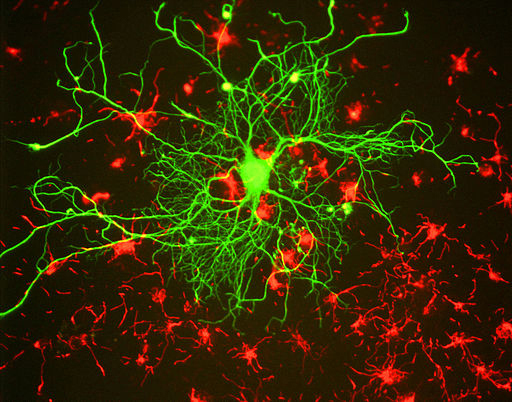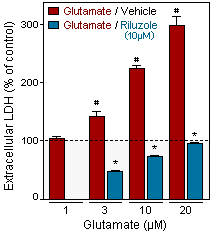Chronic glutamate excitoxicity
Newsletter # 81

Cellular models
-
This assumption is supported by Neurofit's finding, as it shows that the unique approved drug for ALS , Riluzole, markedly prevents the neuronal damage induced by chronic exposure (24h) to low glutamate concentrations.
-
Extracellular LDH

Release of lactate dehydrogenase (LDH) in the extracellular space is a marker of cellular damage.
Sustained exposure of neuronal cultures to a low concentration (20 µM) of glutamate induces a dramatic increase in the LDH release which is markedly prevented by the treatment with Riluzole.
Reviewed in:
- Excitotoxicity: An Organized Crime at The Cellular Level: DOI:10.21767/2171-6625.1000193
- Chronic Glutamate Toxicity in Neurodegenerative Diseases - What is the Evidence?:doi: 10.3389/fnins.2015.00469
Get in touch


 PREVIOUS
PREVIOUS